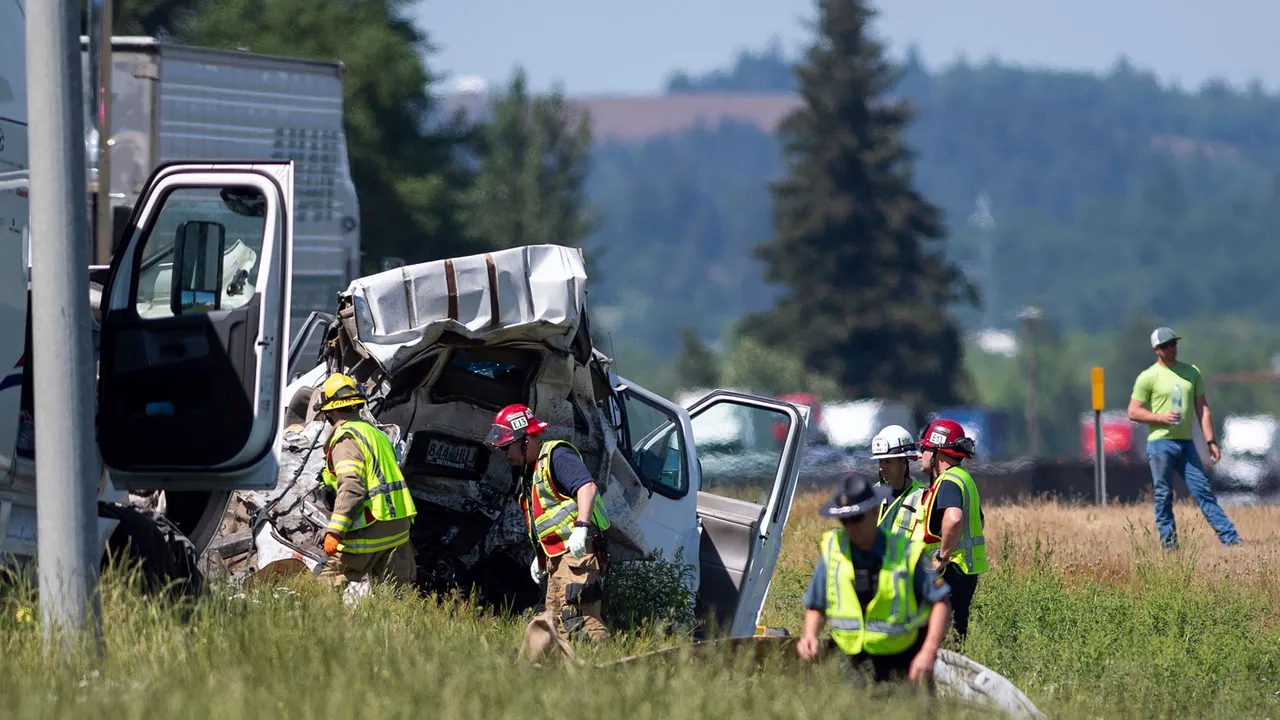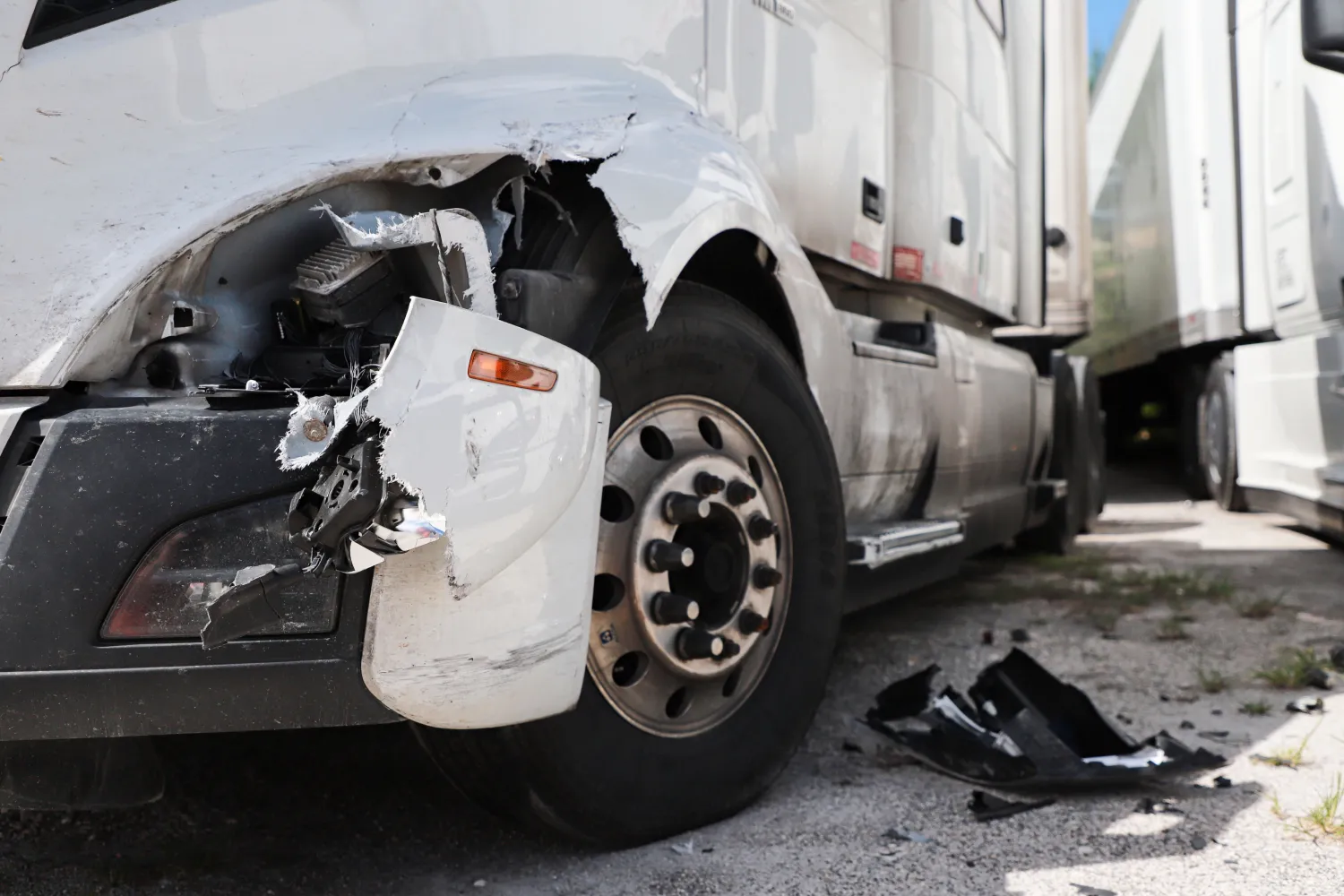What Happens When a Truck Driver Has an Accident
Picture this: You’re cruising down the highway, the wind in your hair and the open road stretching out before you. Everything seems right in the world until, suddenly, it isn’t. In the blink of an eye, a massive truck swerves into your lane, and before you know it, you’re caught in the chaos of a collision. In moments like these, the world can feel like it’s spinning out of control, leaving you grappling with fear, confusion, and uncertainty. But amidst the wreckage and the chaos, there’s one beacon of hope: the expertise of an Atlanta Trucking Accident Attorney. They’re the ones who can guide you through the storm, helping you navigate the tumultuous waters of legal proceedings and insurance claims. So, buckle up and hold on tight as we delve into the heart of the matter: What Happens When a Truck Driver Has an Accident?
Understanding the Initial Moments
Picture this: You’re cruising down the highway, minding your own business, when suddenly, out of nowhere, a massive truck veers into your lane. Before you know it, there’s a heart-stopping collision. In those initial moments, shock and adrenaline flood your system. But what about the truck driver? They’re likely experiencing similar emotions, compounded by the responsibility of operating a large commercial vehicle.
The aftermath of a truck accident is a whirlwind of chaos. First responders rush to the scene, assessing injuries and securing the area. Meanwhile, both drivers are in a state of shock, trying to process what just happened. It’s a terrifying experience, one that can have lasting effects on everyone involved.
Medical Attention for Injuries
When a person sustains injuries in an accident, seeking medical attention is crucial for their well-being and recovery. Here are the steps typically involved in receiving medical care for injuries:
- Assessment of Injuries: The first step is to assess the extent and severity of the injuries. This may involve evaluating visible injuries and asking about symptoms to determine the appropriate level of care needed.
- Immediate First Aid: If the injuries are minor and can be addressed with basic first aid, such as cleaning wounds or applying bandages, this may be done at the accident scene or at home.
- Emergency Medical Services: For more serious injuries, emergency medical services (EMS) should be called immediately. EMS personnel are trained to provide on-site medical care and stabilize the injured person before transporting them to a medical facility.
- Hospital or Clinic Visit: Injured individuals may need to visit a hospital emergency room or an urgent care clinic, depending on the severity of their injuries. Hospitals are equipped to handle a wide range of medical emergencies, while urgent care clinics can provide prompt care for non-life-threatening injuries.
- Medical Evaluation and Treatment: Upon arrival at the medical facility, the injured person will undergo a thorough evaluation by medical professionals. This may include diagnostic tests such as X-rays, CT scans, or blood tests to assess the extent of injuries.
- Treatment Plan: Based on the evaluation, a treatment plan will be developed to address the injuries. This may include medications, procedures, surgeries, or referrals to specialists for further care.
- Follow-up Care: Depending on the nature of the injuries, follow-up appointments may be scheduled to monitor progress, remove stitches, change dressings, or adjust treatment plans as needed.
- Rehabilitation and Recovery: For more severe injuries or conditions requiring rehabilitation, such as physical therapy for musculoskeletal injuries or occupational therapy for functional recovery, a structured rehabilitation program may be recommended.
- Documentation and Insurance: Throughout the medical care process, documentation of injuries, treatments, and medical expenses is important for insurance claims and legal purposes, especially in cases involving accidents or personal injury claims.
- Emotional Support: In addition to physical care, emotional support and counseling may be beneficial for individuals coping with the trauma of an accident and the associated injuries.
Overall, seeking prompt and appropriate medical attention is essential for ensuring the best possible outcome and facilitating a speedy recovery from injuries.
Legal Ramifications
Once the dust settles, the legal process kicks into gear. This is where things can get tricky, especially when it comes to truck accidents. Commercial trucking companies are subject to a myriad of regulations, and when an accident occurs, there’s a lot at stake.
For the truck driver, there’s the immediate concern of liability. Were they at fault for the accident? Were there extenuating circumstances, like mechanical failure or hazardous road conditions? These are questions that need answers, and they can have a significant impact on the driver’s future.
Then there’s the matter of insurance. Trucking companies typically carry hefty insurance policies to cover accidents, but navigating the claims process can be daunting. Insurance companies are notorious for dragging their feet and denying claims, leaving drivers in the lurch.
Personal Fallout
Beyond the legal and financial implications, there’s also the personal fallout to consider. Truck drivers are often portrayed as tough and stoic, but they’re human beings with emotions just like anyone else. Being involved in a serious accident can take a massive toll on their mental and emotional well-being.
From PTSD to survivor’s guilt, the psychological effects of a truck accident can linger long after the physical injuries have healed. It’s a traumatic experience that can shatter lives and leave lasting scars, both seen and unseen.
The Importance of Legal Representation
In the wake of a truck accident, one of the most crucial steps a driver can take is to seek out legal representation. This is where an Atlanta Trucking Accident Attorney comes into play. These legal professionals specialize in handling cases involving commercial trucking accidents, and they know the ins and outs of the law like the back of their hands.
Having an attorney on your side can make all the difference in the world when it comes to navigating the complex legal landscape of trucking accidents. They can help gather evidence, negotiate with insurance companies, and advocate for your rights every step of the way. In essence, they’re your ally in the fight for justice. Read on “How To Find The Right Truck Accident Attorney” to help you find the best legal representation for you.
The Road to Recovery
Recovering from a truck accident is no easy feat. It requires time, patience, and a whole lot of resilience. Physical injuries must be treated, emotional wounds must be healed, and financial burdens must be addressed. It’s a long and arduous road, but with the right support system in place, it’s possible to emerge stronger on the other side.
For truck drivers, returning to the road after an accident can be a daunting prospect. The fear of another collision looms large, casting a shadow over every mile traveled. But with proper support and guidance, it’s possible to reclaim a sense of normalcy and regain confidence behind the wheel.
Conclusion
In conclusion, the aftermath of a truck accident is a complex and multifaceted ordeal. From the initial shock of the collision to the long-term repercussions, it’s a journey fraught with challenges and uncertainties. But with the right resources and support, it’s possible to navigate the road ahead.
If you or someone you know has been involved in a truck accident, don’t hesitate to reach out for help. Whether it’s seeking medical treatment, filing an insurance claim, or consulting with a legal professional, there are resources available to assist you every step of the way.
And remember, you’re not alone. By banding together and supporting one another, we can overcome even the most daunting obstacles. So, stay strong, stay resilient, and keep moving forward. The road ahead may be bumpy, but with perseverance and determination, we’ll get through it together.
Experience the peace of mind you deserve after a trucking accident by partnering with Shani Brooks Law. Our dedicated team is ready to navigate the complexities of your case, ensuring your rights are protected and you receive the compensation you deserve. Don’t face the aftermath alone—let us guide you towards a brighter future. Call us today!
FAQs: What Happens When a Truck Driver Has an Accident
Who is responsible for covering the damages in a truck driver accident?
Liability for damages in a truck driver accident can vary based on factors like negligence, insurance coverage, and state laws. Parties such as the trucking company, driver, and insurance providers may be involved in determining responsibility.
What should I do immediately after being involved in a truck driver accident?
Seek medical attention for any injuries, report the accident to the authorities, gather evidence such as witness statements and photos, and contact a legal professional like Shani Brooks Law to understand your rights and options.
Will I need to go to court if I’m involved in a truck driver accident?
The need for court involvement depends on various factors, including the severity of the accident, liability disputes, and negotiations with insurance companies. Shani Brooks Law can help negotiate settlements or represent you in court if necessary.
How long do I have to file a claim after a truck driver accident?
The time limit to file a claim (statute of limitations) varies by state and type of claim. It’s crucial to consult with legal experts like Shani Brooks Law promptly to ensure you meet any deadlines and protect your rights.
What types of compensation can I receive after a truck driver accident?
Compensation may include medical expenses, lost wages, property damage, pain and suffering, and other related costs. Shani Brooks Law can assess your case and pursue maximum compensation on your behalf.


